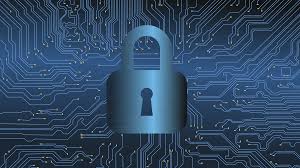- If you have a computer at work use Remote Desktop to access
 For desktop users the best way to keep secure while working remotely is to use Remote Desktop to connect to your WBS-supplied computer which stays at work. This method uses the screen, keyboard and mouse of your home device but all the sensitive files and information stay on your office computer where we can ensure it is backed up and secure. We recommend you set up and test remote desktop access now so that we are able to troubleshoot any issues before you need this functionality.
For desktop users the best way to keep secure while working remotely is to use Remote Desktop to connect to your WBS-supplied computer which stays at work. This method uses the screen, keyboard and mouse of your home device but all the sensitive files and information stay on your office computer where we can ensure it is backed up and secure. We recommend you set up and test remote desktop access now so that we are able to troubleshoot any issues before you need this functionality.
- Ensure your home computer is updated
At least once a month Microsoft (or Apple) will release security updates that you should apply to your computer. To make yourself a smaller target remove any programs from your computer that you no longer use.
- Do not use other, non-approved systems for access
There are other technical solutions that allow remote access to devices (such as Teamviewer). These must not be used at Warwick. There have been many examples of problems with these products and they have not been tested or approved for use. If you have a problem accessing the information you need please email help@wbs.ac.uk and we will be happy to advise.
- Beware of scams that target newsworthy events
Scammers will try to use any news event to try to trick you or steal your information or money. Be especially vigilant for scams, for example messages that claim to be from the University of Warwick asking you to change your password or make any other change that is not normal or does not feel right. If you have any doubt always check with the WBS Helpdesk (help@wbs.ac.uk) before proceeding.
- Report any security events immediately
If you ever feel your information has been compromised immediately email help@wbs.ac.uk with details. Do not be embarrassed if you fall for the first stage of a scam. It is perfectly understandable to start from a position of trust and to take a few interactions before you feel something is wrong. Alert eSolutions as soon as you do feel uneasy or concerned so we can ensure your work and privacy are protected. That said we should all likely try to shift our mindset to be a little less trusting in the online world that we might be in our daily physical lives.
- Take care of physical information
Unlike at work you may not have easy access to shredders or the like. Take care if you need to dispose of any notes or other physical documentation.
- Use the University VPN if you are out and about
Many cafes and airports etc offer free wifi but the security of these cannot be verified. Use the VPN service when you are out or in particularly worrisome locations (e.g. airports) consider using the mobile data on your university phone.
- Other sources of information
There is more information on the Information and Data Compliance team's website although it is quite focused on central university systems.
 For desktop users the best way to keep secure while working remotely is to use Remote Desktop to connect to your WBS-supplied computer which stays at work. This method uses the screen, keyboard and mouse of your home device but all the sensitive files and information stay on your office computer where we can ensure it is backed up and secure. We recommend you set up and test remote desktop access now so that we are able to troubleshoot any issues before you need this functionality.
For desktop users the best way to keep secure while working remotely is to use Remote Desktop to connect to your WBS-supplied computer which stays at work. This method uses the screen, keyboard and mouse of your home device but all the sensitive files and information stay on your office computer where we can ensure it is backed up and secure. We recommend you set up and test remote desktop access now so that we are able to troubleshoot any issues before you need this functionality.